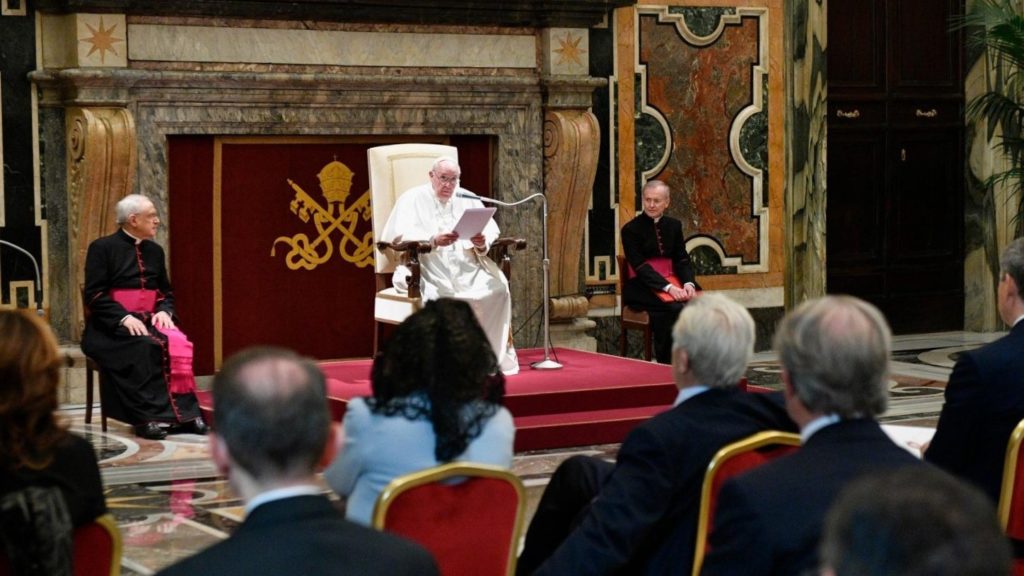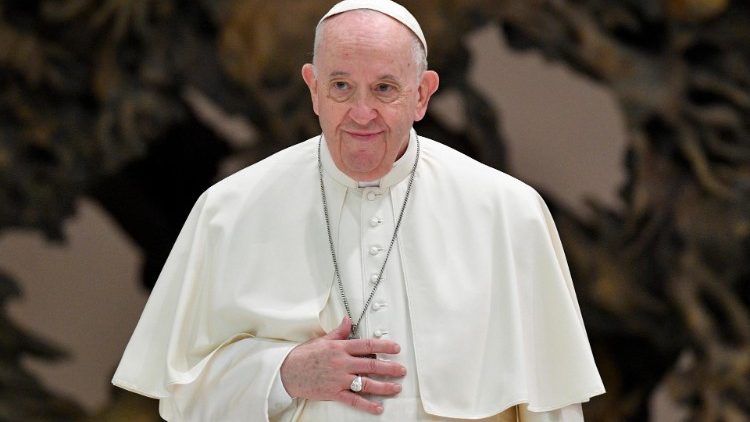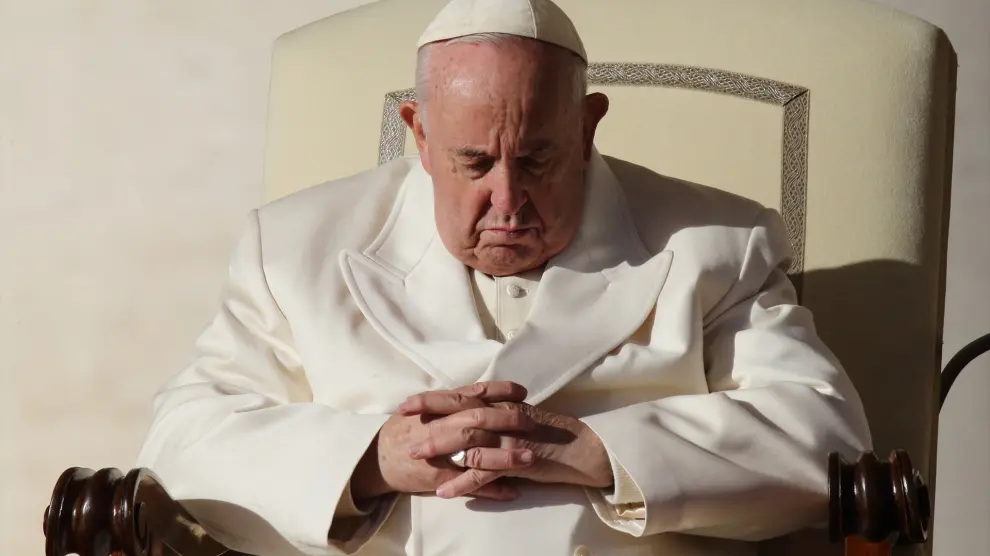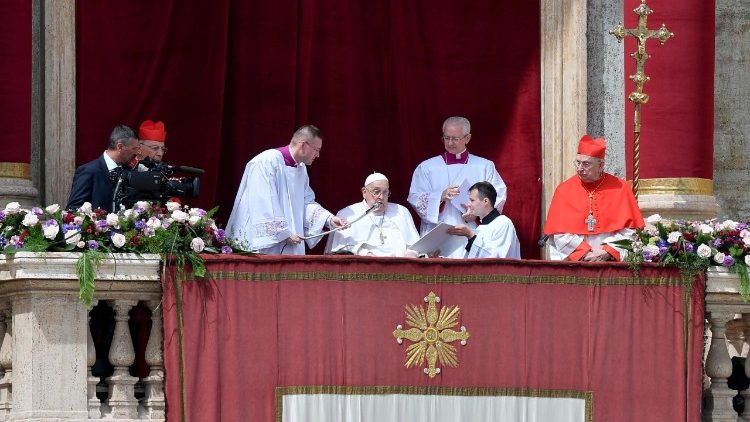‘Put the Patient Before the Disease,’ Says Pope
Address to the Members of the Biomedical Campus of Rome

This morning, October 18, 2021, Pope Francis met in the Vatican with members of the University Foundation of the Biomedical Campus of Rome, to whom he said that to “put the patient before the disease is essential in all fields of medicine: it is fundamental so that the treatment is truly integral, truly human — the patient before the disease.”
Center on the Person
At the beginning of his argument, the Holy Father said that public healthcare is called “to witness with deeds that there are no unworthy lives or to be rejected because they don’t respond to the criteria of usefulness or the demands of profit.” He explained that we “are living a true throwaway culture,” and “every health center, in particular those of Christian inspiration, should be a place where the care of the person is practiced.”
One must be focused “on attention to the individual, without forgetting the importance of science and research. Because care without science is vain, just as science without care is sterile. Both go together, and only together do they make medicine an art, an art that implies head and heart, which combines knowledge and compassion, professionalism and mercy, competence and empathy.”
Need of the Patient
The Pontiff said that “often profitable paths of profit are pursued, forgetting that before the opportunities of earnings are the needs of the patients that evolve constantly so that one must be prepared to face ever new pathologies and diseases. And he gave an example of “many elderly people with their many related rare diseases, that it’s not known what they are, as there is still no research to understand them.”
It’s beautiful “to be able to address greater emergencies with ever greater openings. And it’s important to do so together. I stress this simple but difficult word: together. The pandemic has shown us the importance of being connected, of collaborating, of addressing common problems in a united way. Healthcare, in particular the Catholic, needs and will increasingly need this, to be in a network, which is a way of expressing the whole,“ he continued.
The Holy Father concluded by clarifying the question of the vaccines, saying that “it is urgent to help the countries that have less, but it must be done with far-reaching plans, not only motivated by the hurry of the rich nations to be safer. Medications should be distributed with dignity, not as pious alms. To do real good, we need to promote science and its integral application: understand the contexts, root treatments, foster healthcare culture.”
Following is His Holiness’ full address, offered by the Holy See Press Office.
* * *
Dear brothers and sisters,
I welcome you and I thank you for your presence and your gift. I am grateful to Professor Paolo Arullani, President of the Foundation, for the words he addressed to me on your behalf. It is good to meet you in person precisely on the day on which we celebrate Saint Luke, whom the apostle Paul calls “the beloved physician” (Col 4: 14).
I gladly accepted the proposal to meet because of what I know of the Campus Bio-Medico in Rome. I know how difficult it is today to work in the field of healthcare, especially when, as in your hospital, the focus is not only on assistance, but also on research to provide patients with the most suitable therapies, and above all, it is done with love for the person. Putting the sick person before the disease is essential in every field of medicine; it is fundamental for treatment that is truly comprehensive, truly human. The patient comes before the illness. Blessed Alvaro del Portillo encouraged you to do this: to place yourselves every day at the service of the human person in his or her entirety. I thank you for this, it is very pleasing to God.
The centrality of the person, which is at the foundation of your commitment to assistance, but also in teaching and research, helps you to strengthen a united and synergic outlook. An outlook that puts in the first place, not ideas, techniques and projects, but the real person, the patient, to be cared for by encountering his or her history and lived experience, establishing friendly relations, which heal the heart. Love for man, especially in his condition of fragility, in which the image of Jesus Crucified shines through, is specific to a Christian reality and must never be lost.
The Foundation and the Campus Bio-Medico, and Catholic healthcare in general, are called to bear witness to the facts that there are no lives that are unworthy or to be rejected because they do not respond to the criterion of usefulness or the demands of profit. We are living in a real throwaway culture: this is something in the air that we breathe and we must react against this throwaway culture. Every healthcare structure, in particular those of Christian inspiration, should be the place where the care of the person is practiced, and where one may say: “Here we do not see only doctors and patients, but people whom we receive and help; here you encounter first-hand the therapy of human dignity. And this should never be negotiated, it should always be defended.
The focus should therefore be on caring for the individual, without forgetting the importance of science and research. Because treatment without science is vain, just as science without treatment is barren. The two things go together, and only together do they make medicine an art, an art that involves head and heart, that combines knowledge and compassion, professionalism and pity, competence and empathy.
Dear friends, thank you for promoting the humane development of research. Unfortunately, we often pursue the profitable paths of profit, forgetting that the needs of the sick come before the opportunities for profit. The needs of the sick are constantly evolving and we must therefore be prepared to deal with new diseases and problems. I have in mind, among others, those of many elderly people and those linked to the many rare diseases, which we know little about since there has not yet been research to understand them well… In addition to promoting research, you help those who do not have the financial means to pay for university and you face significant costs that the ordinary budget cannot bear. I am thinking in particular of the efforts already made for the Covid Centre, the emergency room, and the recent hospice project.
All this is very good, it is good to cope with greater urgencies with greater openings. And it is important to do this together. I stress this simple yet difficult word: together. The pandemic has shown us the importance of connecting, of collaborating, of tackling common problems together. Health care, particularly Catholic health care, has and will increasingly need this, to be in a network, which is a way of expressing togetherness. It is no longer time to follow one’s own charism in isolation. Charity demands giving: knowledge must be shared, expertise must be shared, science must be pooled.
Science, I say, not just the products of science which, if offered on their own, remain band-aids that can dress the wound but not cure it in depth. This applies to vaccines, for example: there is an urgent need to help countries that have fewer of them, but this must be done with far-sighted plans, not just motivated by the haste of wealthy nations to be safer. Remedies must be distributed with dignity, not as pitiful handouts. To truly do good, we need to promote science and its integral application: understanding the contexts, rooting out treatments, nurturing the healthcare culture. It is not easy, it is a real mission, and I hope that Catholic health care will be increasingly active in this sense, as an expression of an outgoing Church.
I encourage you to continue in this direction, welcoming your work as a service to the inspirations and surprises of the Spirit, who along the way makes you encounter so many situations in need of closeness and compassion. I pray for you, I reiterate my gratitude to you, and I give you the Blessing. And I ask you, please, to continue to pray for me. Thank you.
_________________________
Bulletin of the Holy See Press Office, 18 October 2021
Related

More than a Decade of Service, Reform, and Hope
Exaudi Staff
21 April, 2025
4 min

The Pontificate of Pope Francis: A Leadership of Compassion and Renewal for the Church
Exaudi Staff
21 April, 2025
3 min

Pope Francis has died
Exaudi Staff
21 April, 2025
2 min

Pope Francis Calls for Global Peace in His Easter Message
Exaudi Staff
20 April, 2025
2 min
 (EN)
(EN)
 (ES)
(ES)
 (IT)
(IT)

